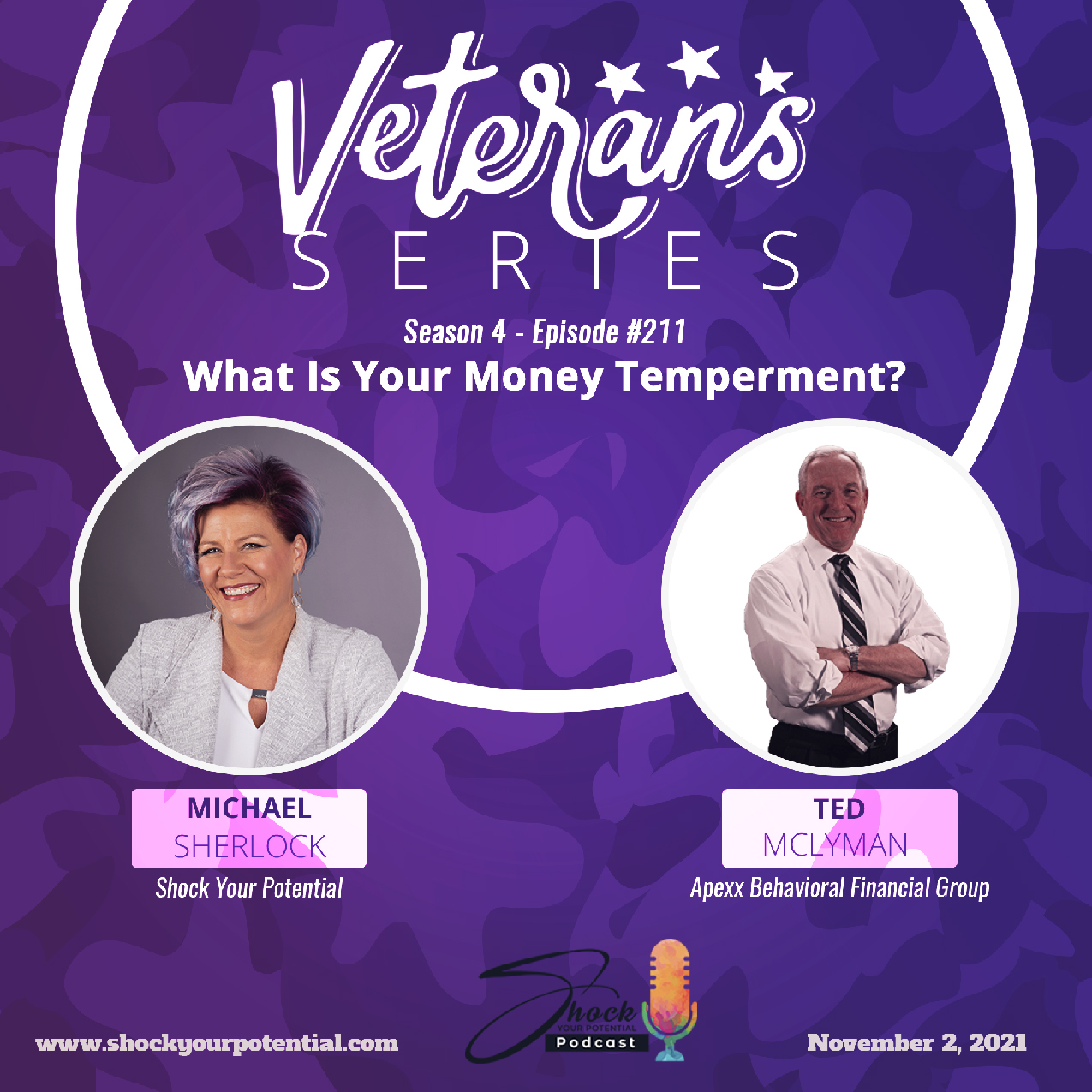“Behavioural financial wellness means you understand what makes you tick with money, how you’re naturally wired, and work for a one size fits you approach.” Ted McLyman
One of the major aspirations for individuals is financial security. In order to support the efforts towards achievement this goal, experts continue to improve the population’s financial capabilities by conducting programs that enhance individual financial knowledge and financial behavior. Ted McLyman has been in involved in numerous programs that deal with financial education and says that the concept of having a money coach should be normalized.
Ted McLyman is an entrepreneur, business owner, author, speaker, trainer, Lt Col, USMC (Ret), and Ironman All World age group triathlete. Ted has over 30 years of award-winning experience, helping individuals and organizations achieve peak performance. He has al BA Social Relations from Colgate University; a MA Public Administration from Pepperdine University; and MS Instructional and Performance Technology from Boise State University.
Ted is the founder of Apexx Behavioural Financial Group, Director of Behavioural Finance, DreamSmartAcademy.com, financial advisor/agent; economics instructor, US Naval Academy; Aide to the Under Secretary of the Navy for Financial Management; Head, Marine Corp Training Management Division; Commander, USMC Financial Management School; artillery officer; Executive Office, Battle Assessment Team, Operation Desert Storm.
He has authored three books on behavioral finance and has also created Quick Scan Money Temperament Assessment. He is a technical consultant for “Behind the Money” program at Impact television and Director for Behavioral Finance, and Advisory Board Member at DreamSmartAcademy.com.
In today’s episode, Ted will talk about his career in the military and the opportunities that helped him build knowledge and skills in financial management.
Listen in!
Social media handles
Website: http://www.tedmclyman.com
Facebook: https://www.facebook.com/TedMcLyman/
Instagram: https://www.instagram.com/tedmclyman/
Twitter: https://twitter.com/TedMcLyman
LinkedIn: https://www.linkedin.com/in/ted-mclyman/
YouTube: https://www.youtube.com/tedmclyman
- I didn’t know how important and consequential it would be to become a vet until I became one. [3:05]
- I grew up in upstate New York in the Finger Lakes area and after University I decided to join the military. [3:39]
- I served on several assignments and then put in a letter to get out of the Marine which wasn’t accepted. [4:22]
- I picked up my first graduate degree at Pepperdine and my payback was to teach economics at the Naval Academy which was incredible. [[5:00]
- It was an opportunity to work with some of the future leaders of the country, the best and the brightest. [5:10]
- I was teaching classical economics which led me to my career on money behavior. [5:16]
- I picked up another master’s degree in performance technology, worked more for the military and after retirement, I opened my first financial planning practice. [5:48]
- I started realizing that my job as an entrepreneur was to build my business and take care of my clients. [6:33]
- I also learned that I was in the business of managing behavior, not money and that became the basis of my writing where we are right now and It has been a great experience. [6:40]
- The wrong decisions I witnessed being made by young people who had joined the military was absolutely the catalyst for me getting started in this. [8:22]
- The institutional side was reactive rather than proactive and held marines accountable and the programs we had were never dealing with the behavior. [9:13]
- We have to understand that money is a subset of modern culture and being human our brains are designed to keep us alive and pass on our genes and not planning. [10:32]
- We talk about behavior and consequences, accountability and coaching in almost everything else in our life but nobody ever talks about a money coach. [11:30]
- The question I always ask myself is how do you know if you’re hardwired to do the things that we are expecting you to do. [11:54]
- There’s a money mindset and a wealth mindset where a money mindset is to spend while the wealth mindset is to build equity, pass it on and create true wealth. [12:47]
- In the modern military you’re trained to be resourceful, innovative, resilient, and get the job done. [14:38]
- You are encouraged to think of all the scenarios to put together plans and alternatives and so I found the transitioning to entrepreneurship not that difficult. [15:07]
- I had the opportunity to do all kinds of incredible things because I raised my hand and gave it a shot. [16:27]
- Delegation means as an entrepreneur you focus on what you’re good at, you become an expert, a professional, and then you build your team around you to compensate. [18:11]
- A successful entrepreneur has a plan and if you’ve got a military background, all you’ve got to do is think of the planning cycle you went through for your first deployment. [19:01]
- Commercial break. [21:30]
- I help people understand their behavior with money because behavior is unique to everyone. [23:30]
- I dropped all my licenses, sold my practice, and I’m working full time as an author, speaker and a coach, trying to change the dialogue about money. [23:54]
- In our culture, particularly United States, we look at money as an independent entity. [24:04]
- Our brains are wired to do things very differently than society wants them to do so our biology gets in the way of our feeling brain. [24:40]
- Modern society demands some accountability which tasks our thinking brain to do things that are uncomfortable and that’s usually money stuff and for most people, the default is do nothin [25:04]
- What I am trying to do right now is launch a movement comprising of group of motivated people that are fed up with business as usual in the financial industry. [25:33]
- If you want to know what your values are, take a look at your calendar and your bank statement. [26:24]
- The next thing you’ve got to look at is your money temperament because you’ve got a unique spending pattern which is a function of where you grew. [27:32]
- Culture is an incredible driver in our money perspective whose influences on our brain are putting us into a spending state that we’ve never had to deal with before. [27:49]
- I am trying to get people to understand that we need to start moving to a behavioral approach to money. [29:37]
- Behavioral financial wellness means you understand what makes you tick with money, how you’re naturally wired, and work for a one size fits you approach. [29:44]
- For the veterans out there, you stepped out and took a risk to join the military and worked out. It’s the same thing would be an entrepreneur. [35:30]
- You can be an entrepreneur within an organization by starting small. Take an assessment of who you are and find out what you’re good at and step out. [35:55]
…………………………………….
Thank you to our April Sponsor: Entrepreneur’s Guide to Financial Well-Being or Wayne Titus
Imagine starting a long journey without a map…or even a clear idea of the obstacles ahead. That’s exactly what it’s like for entrepreneurs who start companies with a lot of passion, but without the financial expertise to grow and scale their businesses and create long-term wealth for their families.
Wayne Titus shows you how to find a financial adviser who can help you map a better journey. In his book, The Entrepreneur’s Guide to Financial Well-Being. With the right adviser at your side, you’ll have the freedom to focus on what really matters to you.
Get The Entrepreneur’s Guide to Financial Well-Being at Amazon.com and in the virtual bookstore on the Shock Your Potential app.




